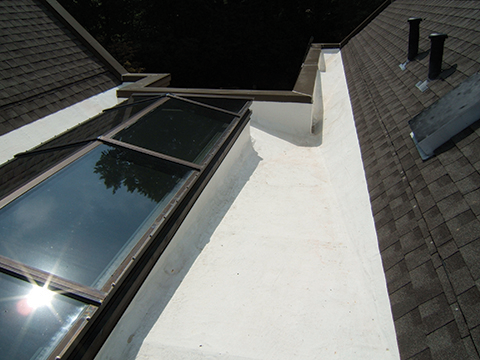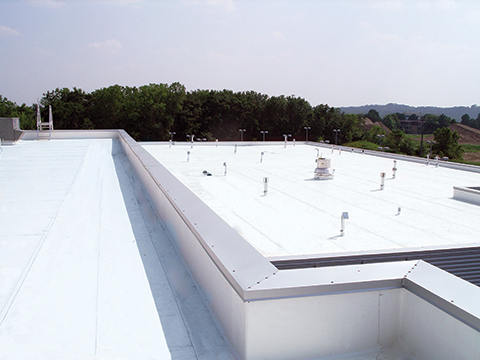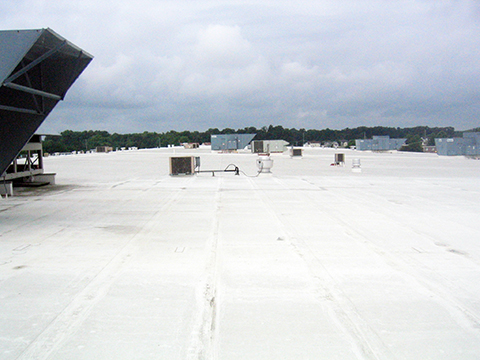Single-ply membrane roofing systems have grown in popularity in recent years as a low-cost, long-lasting, and simple-to-install roofing solution for commercial and industrial structures. In contrast to traditional roofing systems, which have numerous layers of materials, single-ply membrane roofing has a single sheet of synthetic polymer material. As a result, they are lightweight and flexible, making them perfect for flat or low-slope roofs.
When considering a single ply membrane roofing system for your building, it is important to understand there are multiple options available. Each option offers unique benefits. Partnering with a professional that understands not only the roofing system, but your business needs, is crucial to ensuring the right system is installed.
Single Ply Membrane Options
There are 3 primary Single Ply Membrane options to consider.
TPO Single Ply Membrane
TPO single-ply membrane roofing systems are one of the most popular options for commercial and industrial buildings. TPO is a type of thermoplastic elastomer that is known for its durability, energy efficiency, and ease of installation. TPO is also UV-resistant, which means that it can withstand exposure to sunlight without deteriorating over time. This makes it an excellent option for areas with elevated levels of sun exposure. Moreover, TPO is also environmentally friendly, as it is recyclable and can be made from recycled materials.
Flexion XL single ply membrane is a premium TPO option. Flexion XL is a type of synthetic polymer that is known for its durability, flexibility, and resistance to harsh weather conditions. Flexion XL is also UV-resistant and has a long lifespan, which makes it a great option for areas with extreme weather conditions. Flexion XL is also environmentally friendly, as it is recyclable and can be made from recycled materials.
PVC Single Ply Membrane
Another option is PVC. More technically known as polyvinyl chloride, PVC single ply membrane is another excellent option for some commercial or industrial roofing applications.
Resistant to puncture and damage, PVC exhibits a durable nature. With chemical and grease resistant properties, it can be an excellent candidate for businesses like restaurants or dry cleaners, where environmental contaminants are common.
EPDM
Also known as “rubber roofing”, EPDM is a solid roofing system candidate for many business owners. It is strong, durable, and long-lasting. The biggest drawback has been the limitation to black, which absorbs heat, keeping the building warmer year-round. Recently, EPDM has become available in a white color, to help improve energy efficiency.
Advantages of Single Ply Membrane Roofing
There are several advantages to using single ply membrane roofing systems for commercial and industrial buildings.
Cost-effectiveness: Single-ply membrane roofing systems are less expensive to install than many traditional roofing systems since they require lesser labor and materials.
Durability: Single-ply membrane roofing systems are highly durable and can last for many years with proper maintenance.
Energy efficiency: Single-ply membrane roofing systems are very energy efficient and can help your business save money on cooling costs, increasing overall operational efficiencies.
Easy installation: Single-ply membrane roofing systems are easy to install, which helps reduce labor costs and minimize disruption to your business operations.
Resistance to weather conditions: Single-ply membrane roofing systems are highly resistant to weather conditions, including UV exposure, wind, rain, and snow.
At Outback Exteriors, we specialize in the installation and repair of single ply membrane roofing systems, including TPO and Flexion XL. Our team of experienced roofing professionals will help you to choose the best roofing solution for your commercial or industrial building and ensure that it is installed to the highest standards. Call us today to schedule your consultation, 717-682-8923.






